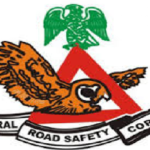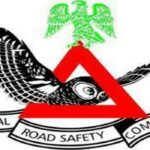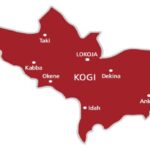The Federal Road Safety Corps (FRSC) says most of the trucks plying Nigerian roads are very old and must be changed to further enhance road safety and reduce accidents.
Mr Hyginus Omeje, Lagos State Sector Commander of the Corps, made this known in an interview with the News Agency of Nigeria (NAN) in Lagos on Wednesday.
He spoke on truck-related accidents and the need to regulate movement of trucks in the state.
“Most of these vehicles that we have on our roads, particularly trucks, tankers and trailers are very old.
“They are old and need to be replaced but the economy is not telling the operators to do the needful.
“Most of the trucks on our roads are actually old, older than you and I. They need to be changed to further enhance safety on the roads,” Omeje said.
The corps commander said that human, mechanical and environmental factors had been responsible for the increasing road fatalities and deaths.
“At times, you see a truck having a lone crash and you begin to ask of the cause. The cause may be that the driver slept off or the truck not mechanically sound and being managed,” he said.
According to him, the state of the road is not as important as attitudinal disposition of drivers on the road.
“The issue of the road is even a double-edged sword. We have had cases where some sections of the road that were well-expanded and rehabilitated witnessed fatal crashes when drivers wanted to finish their speedometer.
“Good roads can cause crashes; bad roads can also cause crashes.
“It is expected from that man behind the wheel to use the road in line with laid-down rules and regulations.
“If we can obey traffic rules and regulations and drive defensive, we can avoid all these crashes. Many times, vehicles that are not roadworthy are being managed by their drivers,” he said.
On what the corps was doing on truck-related accidents, Omeje said that the FRSC had been engaging stakeholders in terms of collaboration, awareness campaigns and enlightenment.
He said that stakeholders’ engagement was considered key by the corps in line with its goal of reducing Road Traffic Crash (RTC) by 20 per cent and fatalities by 20 per cent in 2019.
“We are always at motor parks, synergising with the National Union of Road Transport Workers, Road Transport Employers Association of Nigeria, Nigerian Association of Road Transport Owners and other critical stakeholders.
“The FRSC trained about 1,500 Nigerian Union of Petroleum and Natural Gas workers (NUPENG) drivers about two weeks ago at a five-day programme.
“We have been partnering also with DPR to see how we can address the issue of crashes involving tankers of the wet cargo,” Omeje said.
He said that the corps had a programme called `Safe to Load’ to also address truck and tanker-related accidents.

 Join Daily Trust WhatsApp Community For Quick Access To News and Happenings Around You.
Join Daily Trust WhatsApp Community For Quick Access To News and Happenings Around You.


